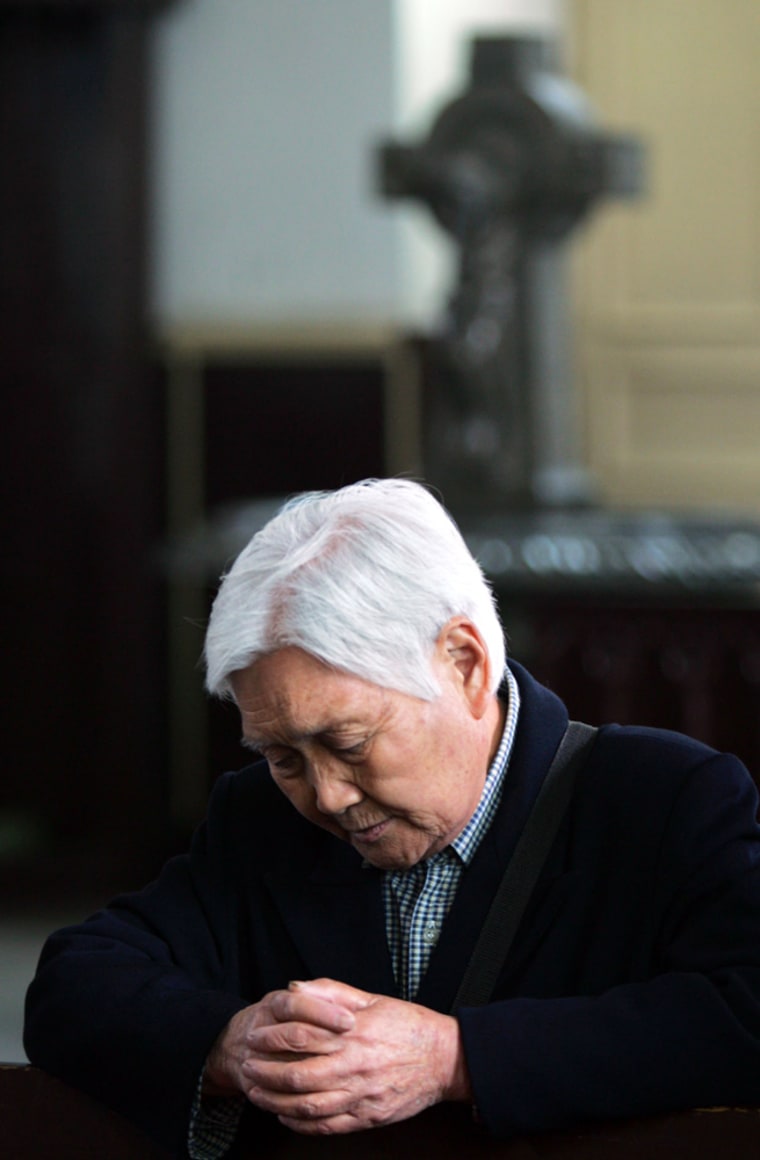Dispatches from around the world:
• April 20, 2005 |Mexico City |
Some Mexicans disappointed that pope not from region
As the bells rang at the Mexico City Cathedral to share the news of the election of Pope Benedict XVI on Tuesday, many clapped profusely, but others voiced frustration that a candidate from the region had not been picked to replace John Paul II.
Talking to people out in the streets and churches, many said it was God's decision after all and they had to accept it. Others said they already loved the new pope and were hoping to see him in Mexico very soon.
"I hope he comes soon to visit us, so we can get to know him better,” said Maria Eugenia Guerrero, who quickly went to the basilica of Guadalupe as soon as she heard the news. ”We are proud of him and this announcement has made me very happy.”
President Vicente Fox interrupted a visit to the northern state of Sonora to quickly offer his congratulations and extended an open invitation to visit Mexico soon.
But, for many others, Benedict XVI is seen as a conservative pope, too old and old fashioned to understand the needs of our times.
"I don't think he cares about Latin-Americans at all," said Ana Paula Blanco, who almost cried when she heard the news because she doesn't believe Latin America is important to the new pontiff.
"He is a conservative pope," said Stephanie Brewster, voicing skepticism about Ratzinger. "The world we live nowadays requires an open mind to process all the changes we are going through."
Mexicans had a very intense relationship with the late John Paul II. He visited Mexico five times during his papacy and it was his first destination overseas as a pope. He also had a devotion to the Virgin of Guadalupe — Mexico's patron saint.
From Laura Saravia, NBC News' Mexico City Bureau Chief.
• April 20, 2005 |Baghdad |
Iraqis Catholics pray amid fear
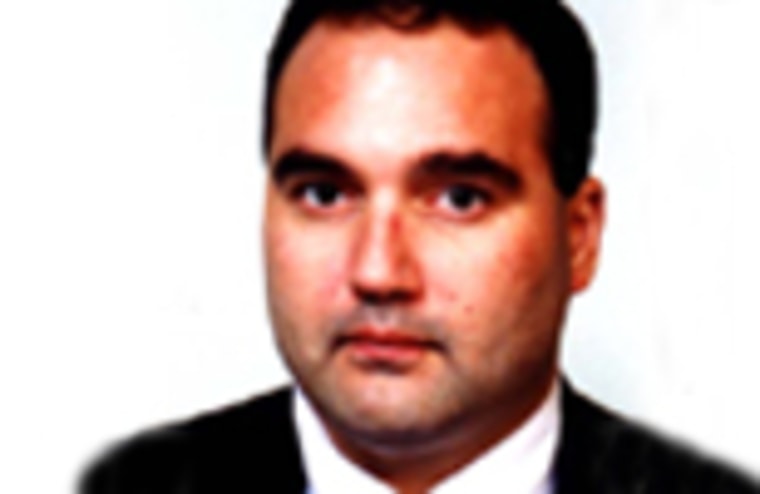
Amid grim reports in Iraq of bodies floating in the Tigris River, Archbishop Sleiman began his Mass with a prayer for Pope Benedict XVI.
In the Central Church behind the National Theatre the 4:30 p.m. service attracted a handful of worshippers. "This election has been inspired by the holy spirit so for me and all the church it is a gift from God himself," he said.
Baghdad has seen the exodus of the mostly Chaldean Catholics, once 700,000 strong, fleeing the fear of sectarian violence. But the archbishop and his nuns still keep to their schedule.
On Wednesday, none of his parishioners wanted to talk, always weary of strangers in their midst. The church has not been spared in the violence that has gripped the capital and the country since the push to oust Saddam Hussein from power more than two years ago.
But Sleiman says they are pleased with the new pope. "I think here in Iraq they are glad and they are thankful to God because it is important to have a pastor and during these two weeks we were without a father, like orphans."
And the former Cardinal Joseph Ratzinger, now Pope Benedict XVI, has already made a good impression. "He has been searching for the truth when he was teaching. He is a very great professor, he is a great writer,” Sleiman said.
The archbishop is under no illusion about the trials and tribulations of his flock. "We hope he will continue to affirm moral values and the dialogue between religions for peace for all of humanity.”
The few young people came up and took their communion from the Archbishop. "I hope he will be able to give answers to the young people who are also seeking the meaning in their lives," he said.
As they returned to their pews for their moment of solitude and prayer, tears were streaming down their faces. In Iraq it is hard to know if they were out of happiness or fear.
• April 20, 2005 | Havana |
Cuban Catholics disappointed
Cuban Catholics expressed some disappointment with the selection of a European cardinal. Many had been praying that the new pontiff would be chosen from Latin America, known as the "Catholic Continent" with as many as 450 million of the world’s 1.1. billion Roman Catholics.
There was even some hope among Cuban Catholics that their cardinal, Jaime Ortega, would be elected the next pontiff even though he was considered a dark horse candidate.
“The pope should be from our region. The church needs to pay more attention to our problems,” said Caridad Cabrera, a hairdresser.
Pedro Soto, an air traffic controller, agreed. “The new pontiff should stay mindful of problems afflicting the developing world — poverty, disease, unemployment.”
Aurelio Alonso, researcher from Havana’s Center for Socio-Religious Studies, argued that the church missed an opportunity to represent its base by choosing a conservative. “Latin America is changing and this election shows a church turning its back on these changes.”
Others here continued to mourn the loss of Pope John Paul II. “We had a special bond with the late pope. He visited us in our darkness and lifted our hearts,” said Eliza Ortega, a special education teacher who joined the church after his 1998 historic visit to the island.
Rosa Alvarez, a housewife "rejoiced" in the news of a new pope but worried that "it will be hard for him to follow in John Paul's footsteps. He was a man who fought to fix the world."
At the same time, the state-owned media continued its unprecedented coverage of Vatican events.
As church bells rang across the island announcing the election of a new pope, government television and radio carried the news live. Granma, the official newspaper of Cuba’s Communist Party, ran a story highlighting the Cardinal Ratzinger’s “rapid election” and glossing over his biography by just listing his religious credentials.
• April 20, 2005 |Tel Aviv |
Israeli leaders praise pope for condemning anti-Semitism
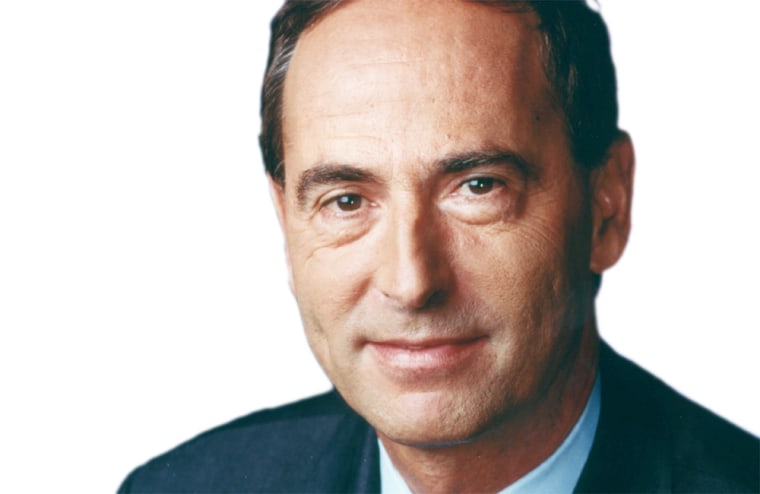
If any country would be upset by the Nazi youth of the German pontiff it would be Israel.
Yet, the response has been the opposite. Israeli politicians and rabbis have been unanimous in their praise and acceptance of Benedict XVI who they say has a long and honorable record of condemning anti-Semitism.
"The Jews have nothing to worry about," the Tel Aviv chief rabbi Israel Meir Lau, a Nazi concentration camp survivor who last year heard then-Cardinal Joseph Ratzinger deliver a speech against anti-Semitism in New York, told Reuters.
Newspaper editorials point out that when he joined Nazi Germany’s Hitler Youth, it was compulsory. And he was never an active member. Their hope is that he will be as supportive of the Jews as his predecessor Pope John Paul II, who Israel saw as the most supportive pope ever.
Muslims have a different take. They want the new pope to take a more active role in bringing about a solution to the Israel-Palestinian conflict than John Paul.
But both sides recognize that as Benedict XVI has a conservative record it is unlikely he will busy himself with Mideast politics beyond doing what Pope John Paul did - issue periodic appeals for calm and peace.
• April 20, 2005 |Mainz|
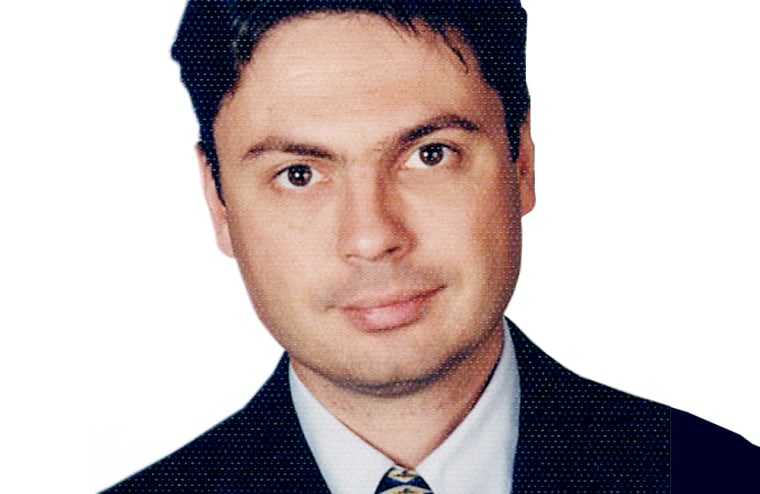
Even though Cardinal Joseph Ratzinger had been widely regarded as one of the main candidates for the papacy before and even during the conclave, most Germans were surprised to see their countryman was elected the new spiritual leader of the Roman Catholic Church.
In the past, Germany's 26 million Catholics had been divided over the arch-conservative cardinal, who is expected to defend John Paul's orthodox legacy. Many had hoped for a more liberal pope.
The moderator of Germany's ARD television morning show opened up the program by saying "There seems to be joy in Germany, but no euphoria.”
Interviews in the streets of Cologne reflected this notion. "I am somewhat surprised, but joyful. I think he will be a competent pope," one man said. "We are living in times of change, in which we might need a bit more constancy," another told reporters.
Yet, there were also critical voices. "He is simply too conservative and too old," a young man said.
And even the 81-year-old brother of Benedict XVI, Georg Ratzinger, questioned whether the cardinals in Rome had made the right decision.
"I was startled last night because I thought his age would be a reason not to vote for him," Ratzinger said. "And even after a good night's sleep, I am still ambivalent to his election," Georg Ratzinger said on German television.
One of Joseph Ratzinger's strongest critics, liberal theologian Hans Kueng, whose license to teach theology was revoked by the Vatican in 1979, was disappointment but also wished the new pope well.
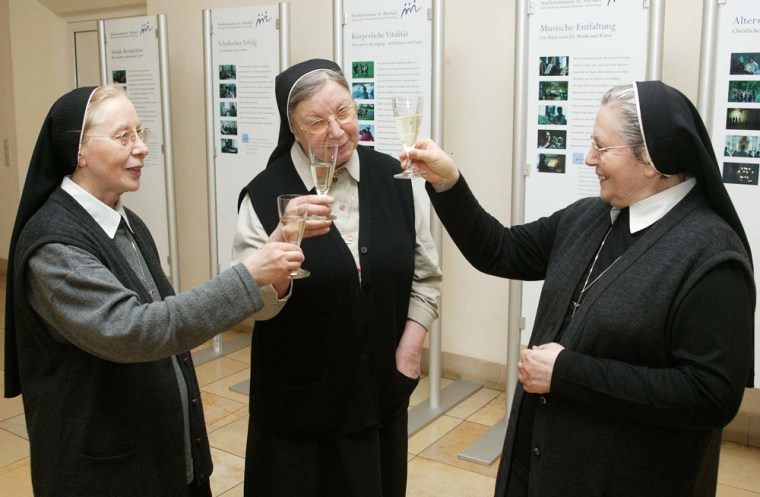
"When I met Ratzinger, he was always friendly and pleasant, but he can also be very cold," Kueng said. "But, no matter how we see him, let's give him a chance," Kueng added.
Despite a recent poll in Germany's Der Spiegel weekly magazine, which showed that 36 percent of Germans opposed Ratzinger becoming pope, while 29 percent favored him, many Germans believe that Ratzinger could surprise his critics in his new role.
And, it seems as if pride could soon outweigh the criticism. Germans are slowly realizing that -- for the first time in almost 500 years -- the world has a German pope.
On Tuesday, Germany's mass circulation newspaper BILD expressed a feeling which many people in Germany might be reluctant to show, when it dedicated its entire front page to a smiling Pope Benedict XVI with the headline shouting, "Our Joseph Ratzinger is Benedict XVI. We are pope!"
• April 20, 2005 | Moscow | 08:00 a.m. ET
Not front page news, but hopes to heal centuries-old split

In a congratulatory message to Pope Benedict XVI on Wednesday, Patriarch Alexiy II, the head of the Russian Orthodox Church, signaled a new willingness to heal a centuries old split between the two faiths.
“Our Churches, which have authority and influence, should unite their efforts to spread Christian values to modern humankind. The secular world is losing its spiritual way and needs our joint testimony as never before,” he said.
Some Russian media, meanwhile, appeared to take caution in dedicating coverage to the new pope, perhaps a result of nationalism ignited by the death of Pope John Paul II. In the wake of the pope’s passing, one Russian lawmaker proposed a ban on coverage, saying it amounted to Catholic “propaganda” at the expense of the Russian Orthodox Church. A parliamentary vote on the proposal failed to pass.
Only a handful of newspapers gave the new pope front-page coverage, relegating the story to the inside pages. Breaking news of Benedict XVI’s election did get prominent attention on state-controlled Russian television on Tuesday.
Despite the Russian patriarch’s positive comments on a Catholic-Orthodox rapprochement, others saw the new pontiff, the former Cardinal Joseph Ratzinger, as a possible roadblock to better ties between the two religions.
Daily newspaper Gazeta noted that Ratzinger, as chief of religious doctrine under John Paul II, believed in the supremacy of the Roman Catholic Church over the Russian Orthodox Church, which split from Rome in the Great Schism of 1054.
The newspaper said Benedict XVI could treat the Orthodox as a “forgotten daughter than a sister religion.”
• April 20, 2005 |Beijing |
China's Catholics hail pope
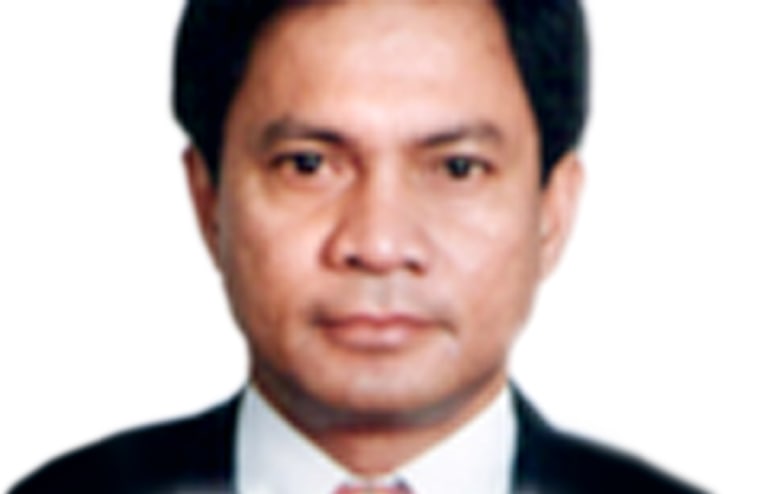
The election of Cardinal Joseph Ratzinger as the new pope has brought joy to China’s Catholics, both in official and underground churches, and prompted hopes for “improved ties” from the Chinese government.
"With joy and happiness in the Risen Christ, we offer to you our hearty congratulations," said the joint message of the official Chinese Catholic Patriotic Association and Chinese Catholic Bishops' Conference.
“We are very happy over the choice of Pope Benedict XVI,” said Sister Teresa Yu of officially-sanctioned Beijing South Cathedral. “We will pray for him.”
“We were excited upon learning the news about the new pope,” echoed Father Paul, who belongs to an underground church in northern China. “We hope he can make a breakthrough in relations with China.”
“We are willing to improve the relationship between China and the Vatican on the basis of two principles,” declared China’s foreign ministry spokesperson Qin Gang, citing the need to break off diplomatic ties with Taiwan, and observe “non-interference” in China’s internal affairs.
“We hope under the leadership of the new pope, the Vatican can create favorable conditions for improving the relations between China and the Vatican,” the Foreign Ministry statement said.
There are some 5 million Chinese Catholics who worship in official churches, while the Vatican estimates some 10 million more belong to underground Roman Catholic churches who follow the pope’s authority.
Both are united in recognizing the pope as the spiritual leader and follow the Vatican’s teachings, though, in the absence of diplomatic ties, China’s official Patriotic Catholic Church runs its own affairs and appoints bishops and priests without the Vatican’s blessings.
“I have three wishes,” said Sister Teresa. “One, that the new pope can normalize relations with China, two, that he will visit China, and three, that our Church, all churches, will become united.”
“I have read his book and I am very impressed by his teachings,” said Father Paul. “He is quite conservative but he has very sharp and distinctive views.”
“I really hope that with his diplomatic efforts, the new pope can break the ice and end the deadlock in relations with China,” he added.
